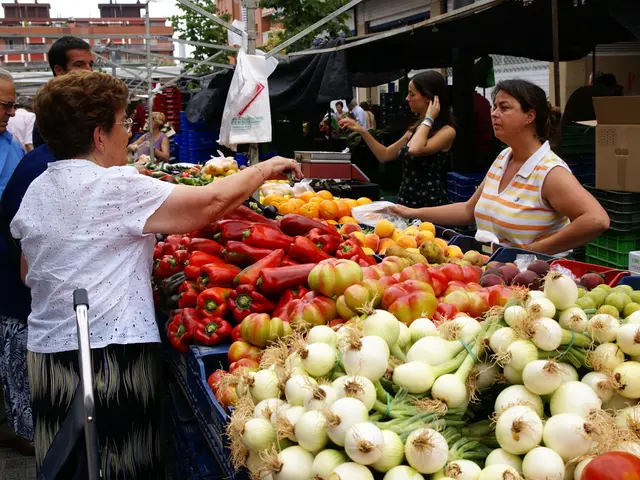Trump Proposes Dramatic Reduction in Drug Costs by 1500%: Unraveling the Real Scenario
Trump's Drug Pricing Policies: Aggressive but Uncertain
President Trump's drug pricing policies are aimed at reducing costs and reforming market incentives, but the enormous decreases in price claimed have not yet materialized, and the actual impact remains uncertain.
The administration, acting alone, has limited power to affect drug prices across the US market. Legislative changes via Congress hold greater potential impact. Trump's efforts to disrupt the pharmaceutical market, however, signal strong political will, which could pressure drugmakers even if the claimed percentages are exaggerated.
Key reforms under Trump’s administration for 2025 include the implementation of a Most Favored Nation (MFN) pricing strategy, changes to the 340B Drug Pricing Program, increased scrutiny and regulation of pharmacy benefit managers (PBMs), and the imposition of tariffs and modifications in how average sales prices are calculated.
Experts predict these reforms may disincentivize manufacturers from offering discounts, possibly resulting in higher out-of-pocket costs for patients rather than the opposite. The pharmaceutical industry is expected to face significant uncertainty and the need to adapt rapidly to evolving policies, affecting manufacturing strategies, pricing, and market approaches, potentially disrupting current supply chains and business models.
In May, Trump signed an executive order on "Most Favored Nation" pricing, directing the Department of Health and Human Services to craft a rule implementing the policy. The administration has also launched an investigation into national security implications of pharmaceutical imports, which are expected to lead to tariffs on the sector. Trump has written letters to 17 major pharmaceutical company CEOs, urging them to comply with the "Most Favored Nation" pricing policy.
Trump's tariffs on pharmaceutical imports could raise drug prices and worsen shortages of generic medicine over time. His threats have prompted a bevy of pharmaceutical companies to announce billions of dollars of investments in their US operations.
It is important to note that President Trump's claim to have lowered drug prices by up to 1,500% is not supported by current evidence, and experts describe such reductions as mathematically impossible. The US paid nearly three times as much for medications as did comparable countries in 2022.
In conclusion, while Trump's drug pricing policies represent an aggressive attempt to lower costs and reform market incentives, the enormous decreases in price claimed have not materialized, and the actual impact remains uncertain, with some reforms potentially having unintended consequences that could increase costs for some patients.
[1] New York Times, "Trump’s Drug Pricing Policies Face Uncertain Future," https://www.nytimes.com/2020/09/27/business/trump-drug-pricing-policy.html
[2] Kaiser Family Foundation, "Trump Administration's Drug Pricing Proposals: A Primer," https://www.kff.org/report-section/trump-administrations-drug-pricing-proposals-a-primer/
[3] Forbes, "Trump's Drug Pricing Policies: What You Need To Know," https://www.forbes.com/sites/michaeldeem/2020/07/01/trumps-drug-pricing-policies-what-you-need-to-know/?sh=1b376a4668a4
[4] Brookings Institution, "Trump’s Drug Pricing Policies: A Progress Report," https://www.brookings.edu/research/trumps-drug-pricing-policies-a-progress-report/
[5] Health Affairs, "The Trump Administration's Drug Pricing Policies: An Overview," https://www.healthaffairs.org/do/10.1377/hblog20200701.165797/full/








